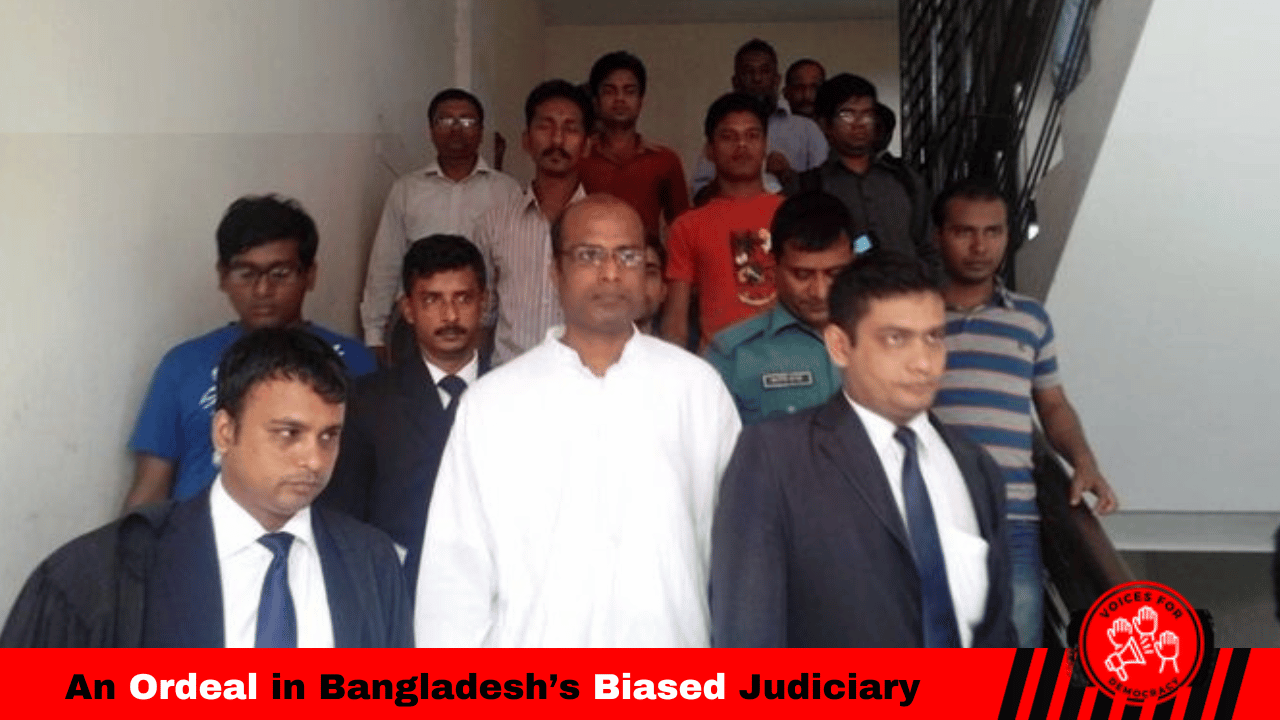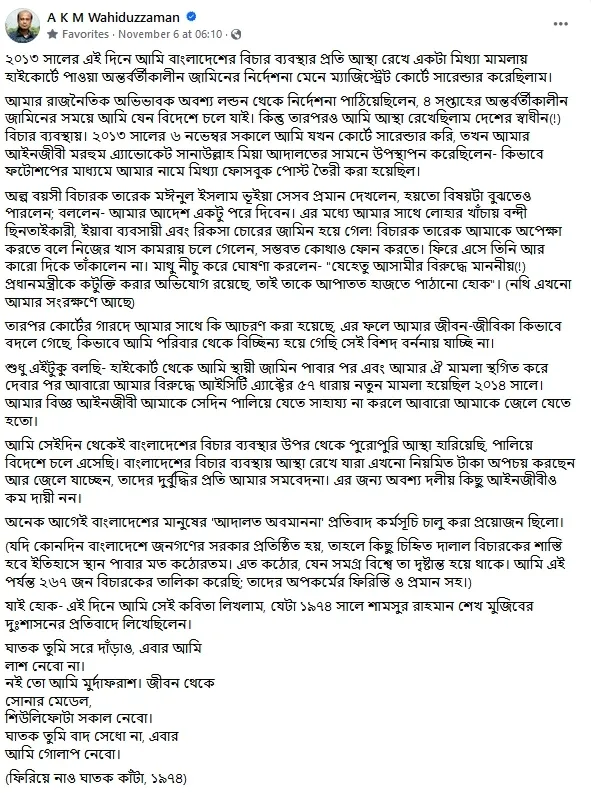
The Accusation and the False Evidence
Prof. A.K.M. Wahiduzzaman, a respected academic with a long history of activism and advocacy for human rights, was accused of insulting the Prime Minister of Bangladesh on a social media platform. The evidence against him was a fabricated Facebook post, created using Photoshop software, bearing his name.
Despite the lack of any credible evidence and the professor’s vehement denial of the accusation, he was subjected to a series of legal proceedings that appeared to be predetermined against him. The judge, Tariq Moinul Islam Bhuiyan, dismissed the professor’s evidence and ordered his imprisonment without due consideration.
Translation of Professor A.K.M. Wahiduzzaman’s story from Bengali to English
On November 6, 2013, I surrendered to the magistrate’s court in accordance with the interim bail I had obtained from the High Court in a false case.
My political mentor had instructed me from London to leave the country during the four-week interim bail. However, I still had faith in the country’s independent judiciary.
On the morning of November 6, 2013, when I surrendered to the court, my lawyer, the late Advocate Sanaullah Miah, presented to the court evidence of how a fake Facebook post was created in my name using Photoshop.
The young judge, Tariq Moinul Islam Bhuiyan, saw the evidence and perhaps understood the matter. He said he would give his order later.
In the meantime, the bail of the snatchers, drug traders, and rickshaw thieves imprisoned in the iron cage with me was granted! Judge Tariq asked me to wait and went to his private chamber, probably to make a phone call. When he returned, he did not look at anyone. He lowered his head and announced, “Since the accused is charged with insulting the Prime Minister, he should be sent to jail for the time being.” (The document is still in my possession.)
I am not going into a detailed description of how I was treated in the court’s guard room, how my life and livelihood changed as a result, and how I was separated from my family.
I will only say this: after I obtained permanent bail from the High Court and my case was suspended, I was again charged under Section 57 of the ICT Act in 2014. If my learned lawyer had not helped me to flee that day, I would have had to go to jail again.
Since that day, I have entirely lost faith in Bangladesh’s judiciary and have fled the country. I sympathize with those who still have faith in Bangladesh’s judiciary and are regularly wasting money and going to jail. Of course, some party lawyers are also responsible for this.
It was necessary to launch a protest movement against the contempt of court by the people of Bangladesh much earlier.
(If a people’s government is ever established in Bangladesh, the punishment of some identified corrupt judges will be the most severe to be placed in history. So severe that it will be an example for the whole world. I have made a list of 267 judges so far; with a list of their misdeeds and evidence.)
Anyway, on this day, I wrote the poem that Shamsur Rahman wrote in 1974 in protest against Sheikh Mujibur Rahman’s misrule.
———- Bengali Poem ——–
ঘাতক তুমি সরে দাঁড়াও, এবার আমি
লাশ নেবো না।
নই তো আমি মুর্দাফরাশ। জীবন থেকে
সোনার মেডেল,
শিউলিফোটা সকাল নেবো।
ঘাতক তুমি বাদ সেধো না, এবার
আমি গোলাপ নেবো।
(ফিরিয়ে নাও ঘাতক কাঁটা, ১৯৭৪)
We hope Professor A.K.M. Wahiduzzaman’s story will raise awareness of the importance of an independent and impartial judiciary. We also hope that it will inspire others to speak out against injustice.

#SpeakOutAgainstInjustice #HumanRightsViolation #HumanRightsForBangladesh #StandUpForJustice
